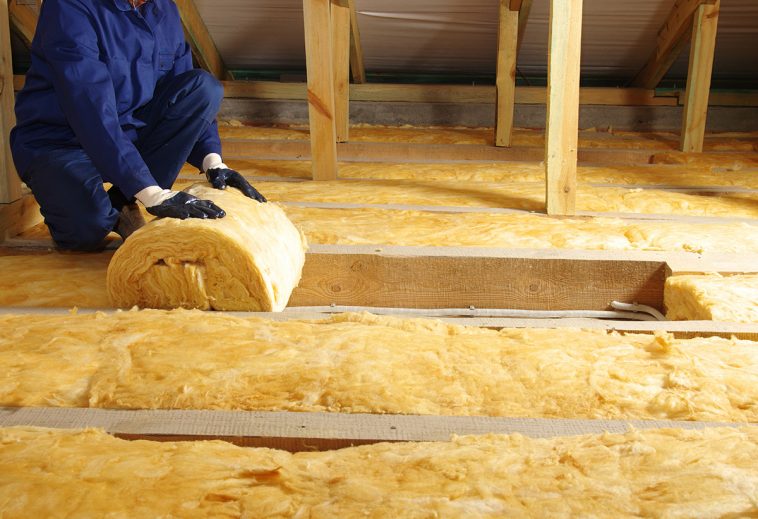The Affordable Warmth grant, which funds energy upgrades in the homes of low income earners, has widened its eligibility criteria.
[adrotate banner=”44″]
In this article we cover:
- Grant amounts available
- Income threshold increase
- How to apply
- How the grant scheme works
- How to carry out the work
- Other grants available in NI
The income threshold for the Affordable Warmth grants has been increased from £20k to £23k.
Some benefits will no longer be included in the calculation of income, including disability living allowance, personal independent payment and carer’s allowance.
[adrotate banner="56"]Non means tested grants for energy upgrades now mostly consist of the long-standing boiler replacement scheme. More about other types of supports available here.
Affordable Warmth grant
Since its inception in 2014, almost 20,000 homes underwent an energy upgrade under the Affordable Warmth scheme which offers a range of energy efficiency improvement measures including loft, cavity and solid wall insulation, new and replacement heating systems and replacement windows.
It is mostly a targeted scheme where local councils actively identify the most vulnerable households who can then benefit from improvements.
The Affordable Warmth scheme offers a grant of up to £7,500 (£10,000 for solid wall
measures), is funded by the Department for Communities and delivered in partnership with the Housing Executive, local councils and a range of local installers.
Grants may not be available if funding for them runs out.
Energy efficiency measures must be completed in the order of priority given upon approval. Details from the NIHE are as below.
Priority areas
Priority 1 – Insulation / Ventilation / Draught-proofing
- installation or topping up of loft insulation to 300mm
- roof/loft/eaves ventilation
- providing a hot water cylinder jacket
- providing cavity wall insulation (if suitable for the property)
- draught proofing doors and/or windows
- removal and replacement of ineffective cavity wall insulation
Priority 2 – Heating
- replace solid fuel, LPG or Economy 7 by providing natural gas or oil central heating
- converting Economy 7 to high efficiency electrical storage system:
- this applies only where gas and oil are not available
- boiler replacement / system upgrade for homes.
- This applies where with a boiler at least 15 years old and the householder:
- is over 65
- has a child in receipt of child benefit or Kinship payments
- receives disability living allowance (DLA) / Personal Independence Payment (PIP) / Attendance Allowance/Industrial Injuries Benefit
- This applies where with a boiler at least 15 years old and the householder:
Priority 3 – Windows
- replace single glazed windows
Priority 4 – Solid Wall Measures
- provide solid wall insulation
Insulating solid wall properties is expensive. The NIHE expects you to complete the other measures first.
The NIHE says it may offer you energy efficiency measures from more than one of the priority groups listed; this scheme should not be considered windows only.
A whole house approach is taken and you must complete each measure in the order of priority.
You may decide not to carry out one or more of the energy efficiency measures we awarded grant-aid for. You must notify the NIHE in writing.
You cannot move grant monies to another measure(s). You will lose this part of the grant-aid awarded.
How to apply
Speak to your local council to see if you might qualify for the scheme.
The way it works if for council staff to visit homes in their area. They will help householders to take part in the scheme. Council staff will:
- make contact with households likely affected by fuel poverty
- check eligibility
- advise on available energy efficiency measures
- ask residents to complete an application form
- send completed application forms to us and, if necessary
- contact the Social Security Agency (SSA) to request a Benefit Entitlement Check* for the householder
*You can also check this entitlement by using SSA’s Make the Call service.
You can find contact details for councils in Northern Ireland from NI Direct at: Local councils in Northern Ireland
House visit
The Technical Officer will arrange to visit your home. They will assess what energy efficiency measures would be suitable for your property. During the visit they will assess if those measures offered by the scheme are required.
The technical assessment may take up to 60 minutes. The time taken depends on your property’s size, type, location and application needs.
Our Technical Officer may need access to all areas and rooms. This may include:
- bedrooms
- hot press
- roof space
- boiler location
- oil tank location
If you have cavity walls in your home, the officer may have to drill a number of small holes in the outside walls to insert a camera. This borescope inspection is done to identify the property’s cavity walls and insulation needs.
You must give your permission to carry out this assessment of your cavity wall. You must provide a signature to confirm this.
Subject to funding being available and qualifying for help, you will be sent an Approval Pack confirming:
- how much grant aid you will get
- what energy efficiency measures you are to carry out and the order of priority (see below)
- that you can start the work
- the date by which you must complete the work (usually within three months of the date of approval) – if not completed by that time the grant may be cancelled
Getting the work done
Do not start work until you receive confirmation, in writing, that you qualify for grant aid. Otherwise you won’t get the grant.
Once you get written approval you must appoint a contractor(s) you believe is competent to carry out the work at your home. You and your contractor(s) must ensure that all work carried out in your home follows:
- all building regulations and
- any other statutory requirements
You may have concerns about the standard of work to your property. Or damage may occur to your home while the work is being carried out. You should raise your concerns with your contractor(s).
As you employ the contractors directly, the NIHE will not get involved in disputes or be liable for any issues wiht hte contractor.
You may be installing or replacing a central heating system in your home. You must make sure that you are using a competent installer.
Where you are having a gas boiler installed you must use a registered Gas Safe Engineer.
NI Direct have more information about the Gas Safe Register. You can read more about this at: Gas Safe Register
If you are awarded grant-aid for solid wall insulation the installer you employ must be in a position to provide a minimum 25-year guarantee for the work.



